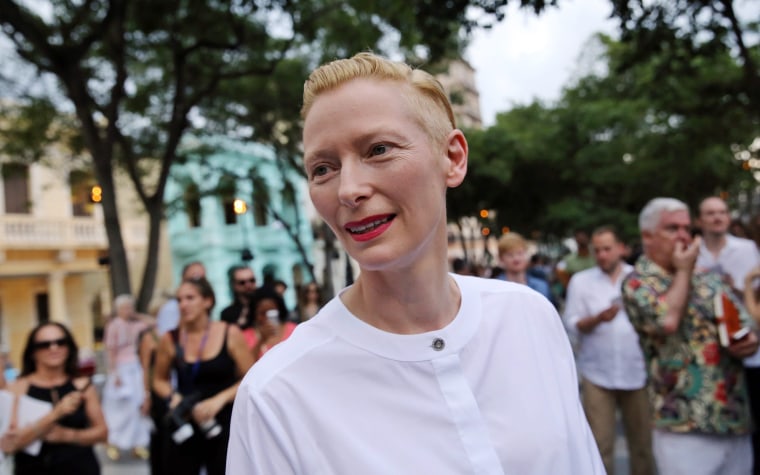After the highly publicized castings of Scarlett Johansson and Tilda Swinton in movie roles that were originally written as Asian characters, Asian Americans took to Twitter Tuesday to show the personal and professional impact of being "#whitewashedOUT," the hashtag referring to both the erasure of Asian characters or culture in stories and the practice of casting Asian characters with non-Asian actors. The hashtag trended much of Tuesday afternoon and evening and garnered tens of thousands of uses.
“It's important for studios and moviegoers to know that the way Asian Americans are presented (or not, in many cases) is wrong,” Keith Chow, editor-in-chief of Nerds of Color, told NBC News. “There shouldn't be cases like ‘Aloha,’ or ‘The Martian,’ or ‘Gods of Egypt,’ or ‘Doctor Strange,’ or ‘Ghost in the Shell’ in the 21st century. The fact that so many people responded so quickly (along with other AAPI-related hashtags) is proof that the community isn't going to be silent on this."
Comedian, actress, and author Margaret Cho helped lead the conversation, along with many of the people behind We Need Diverse Books — an organization dedicated to increasing diversity in literature — and Nerds of Color, giving the conversation a wider breadth than Hollywood films.
"I love what Nerds of Color and Keith [Chow] are doing,” Cho told NBC News. “I was humbled and honored to be asked to participate."
RELATED: Asian Americans in Theater Speak Out with #MyYellowFaceStory
Organizers called on industry professionals to stop casting white actors as Asian characters and called on actors to stop accepting those roles. Organizers are planning to continue the conversation through the month of May, which is Asian American and Pacific Islander Heritage Month.
“We are going to keep talking about this, and we are going to keep the pressure on Hollywood to finally acknowledge their own internalized racism,” Ellen Oh, president of We Need Diverse Books, told NBC News. “Asians have been ignored, overlooked, rejected, dismissed, and condescended to for a very long time. But no longer. We will not stay quiet, we will not be ignored. Hollywood is fooling themselves if they think Asians don't have an effect on their bottom lines. Advertisers have been courting Asian wallets for years now, why aren't Hollywood producers and directors making that same connection?”
Many people using the hashtag pointed out how the lack of representation and the misrepresentation of Asians and Asian Americans in books, television, and film affect real people in real life, especially children.
Many shared personal stories about how they and their children are affected by media stereotypes and lack of Asian and Asian-American representation.
As in an earlier conversation among Asian-American and Latino-American theater artists, which used the hashtags "#MyYellowfaceStory" and "#MyBrownfaceStory," actors and writers told stories about being denied opportunities to play certain characters or to publish certain books because of their race and ethnicity.
Some took a broader perspective to argue for better representation of all people of color in media.
Industry arguments about why Asian Americans cannot be cast in films or be the protagonists of books were challenged.
Many took the opportunity to urge Asian Americans to continue to make their own media, write their own books, and tell their own stories.
Follow NBC Asian America on Facebook, Twitter, Instagram, and Tumblr.
